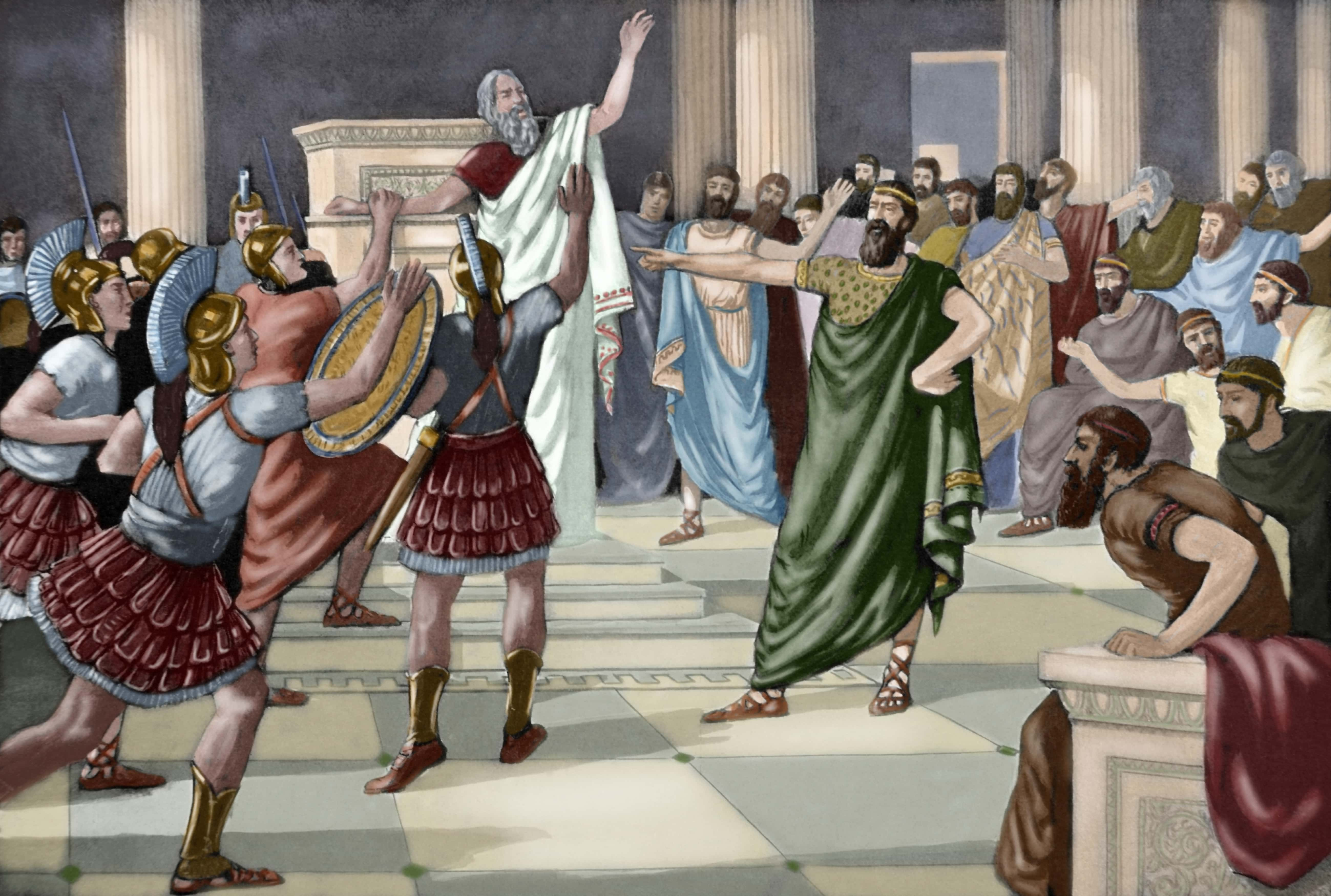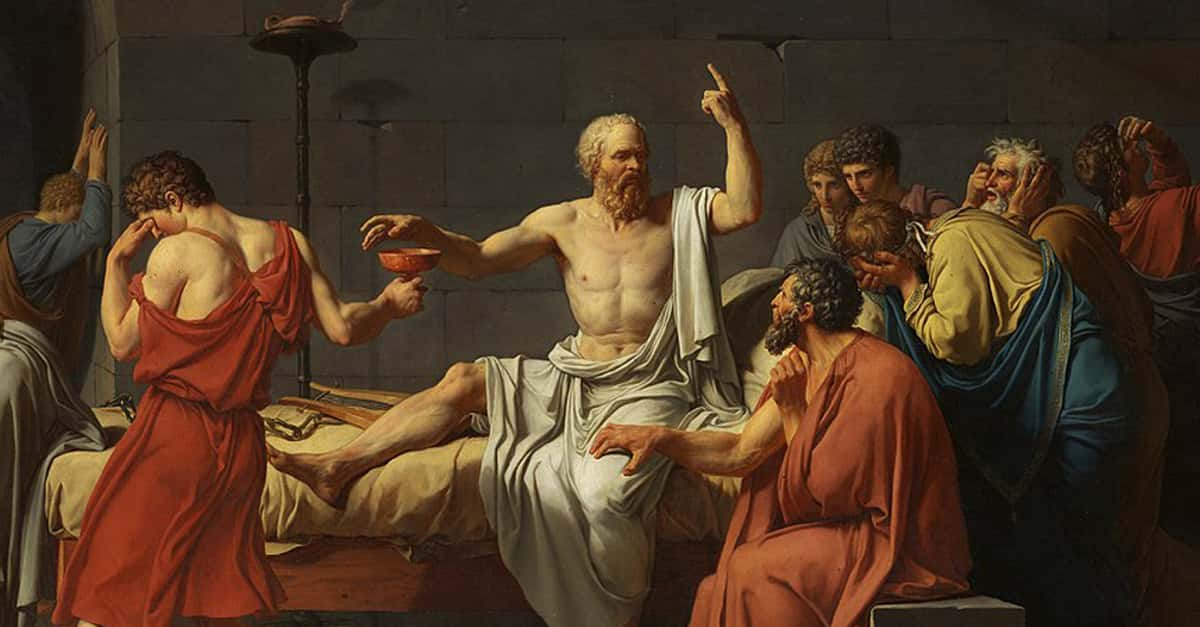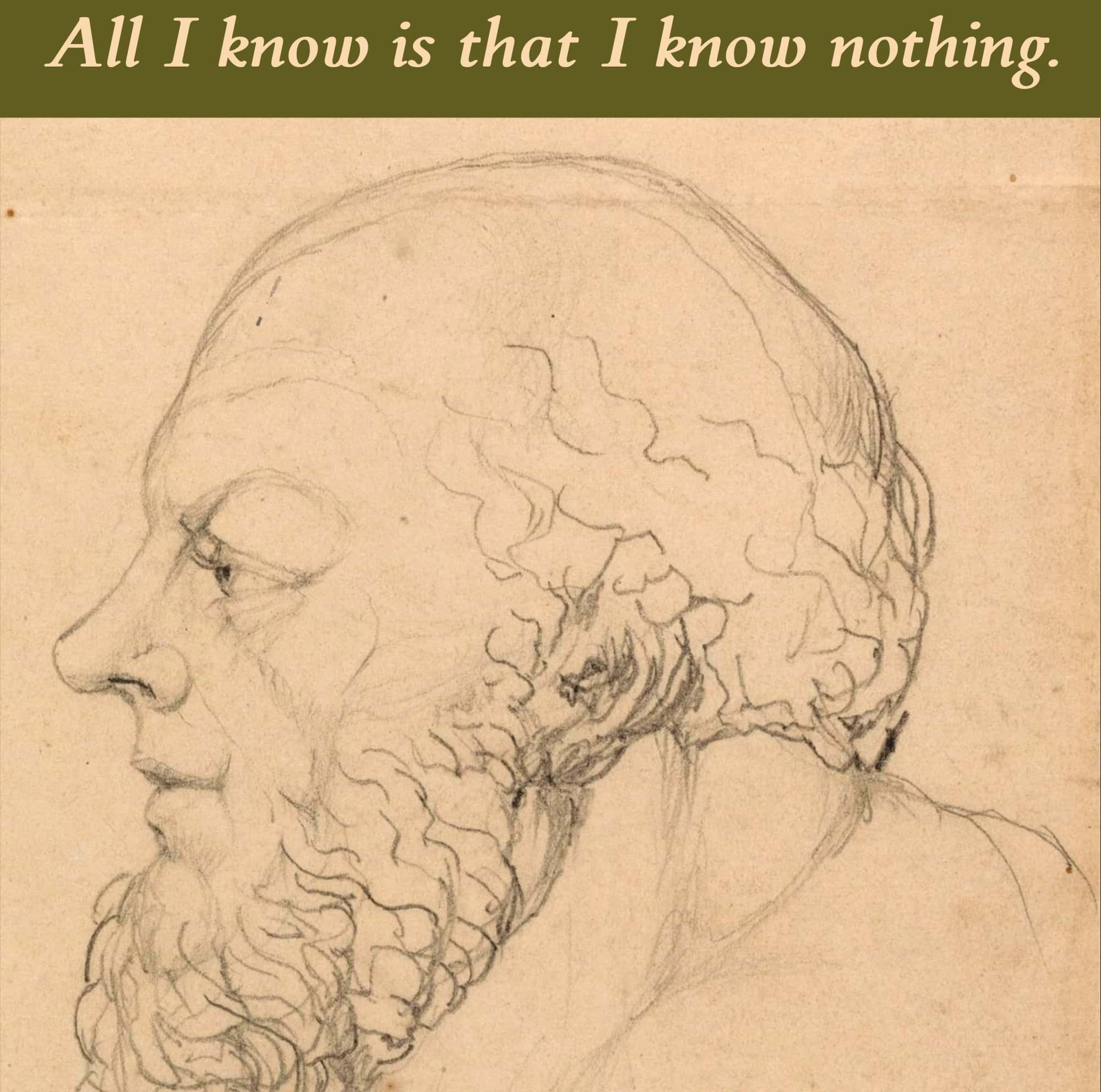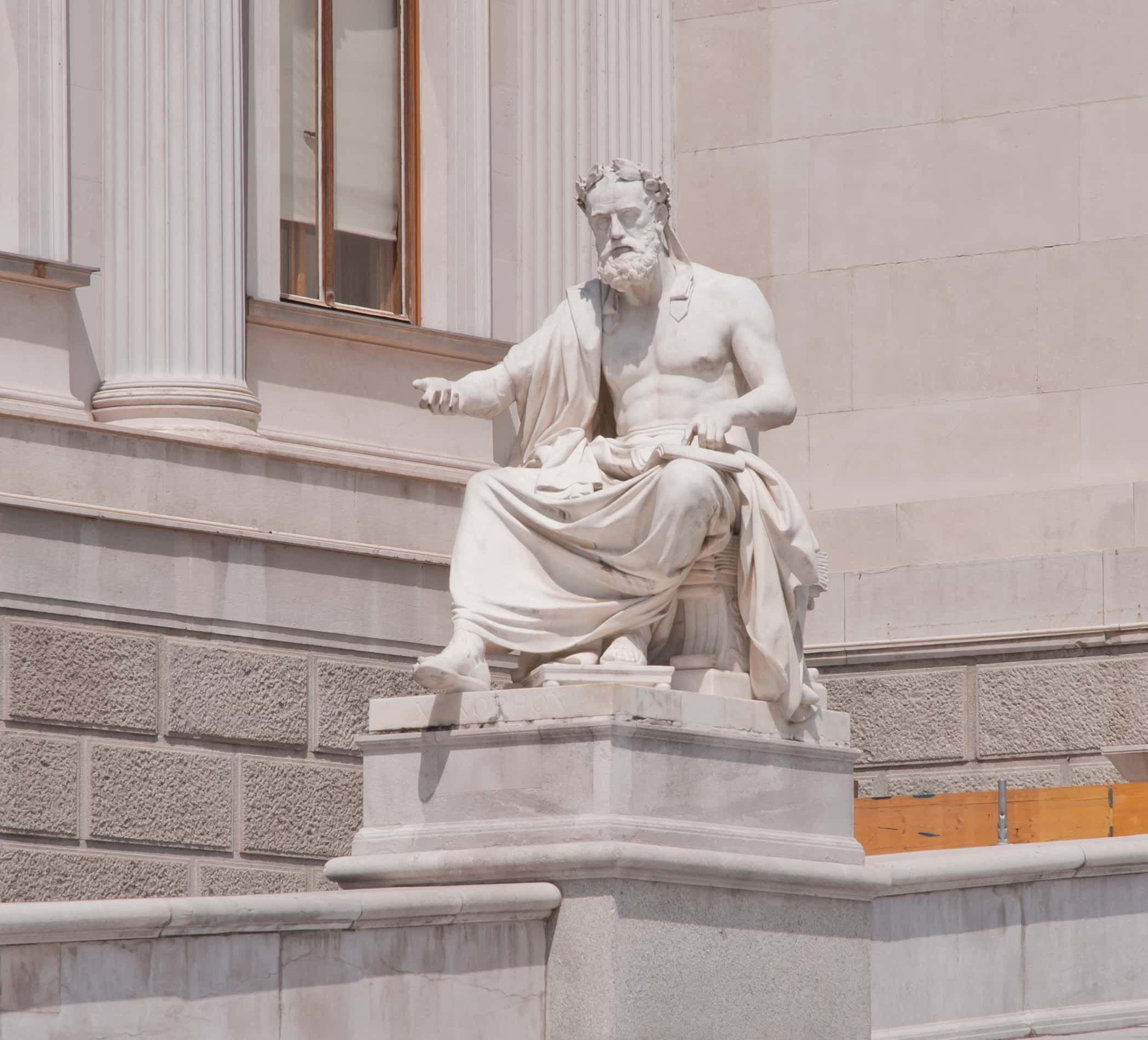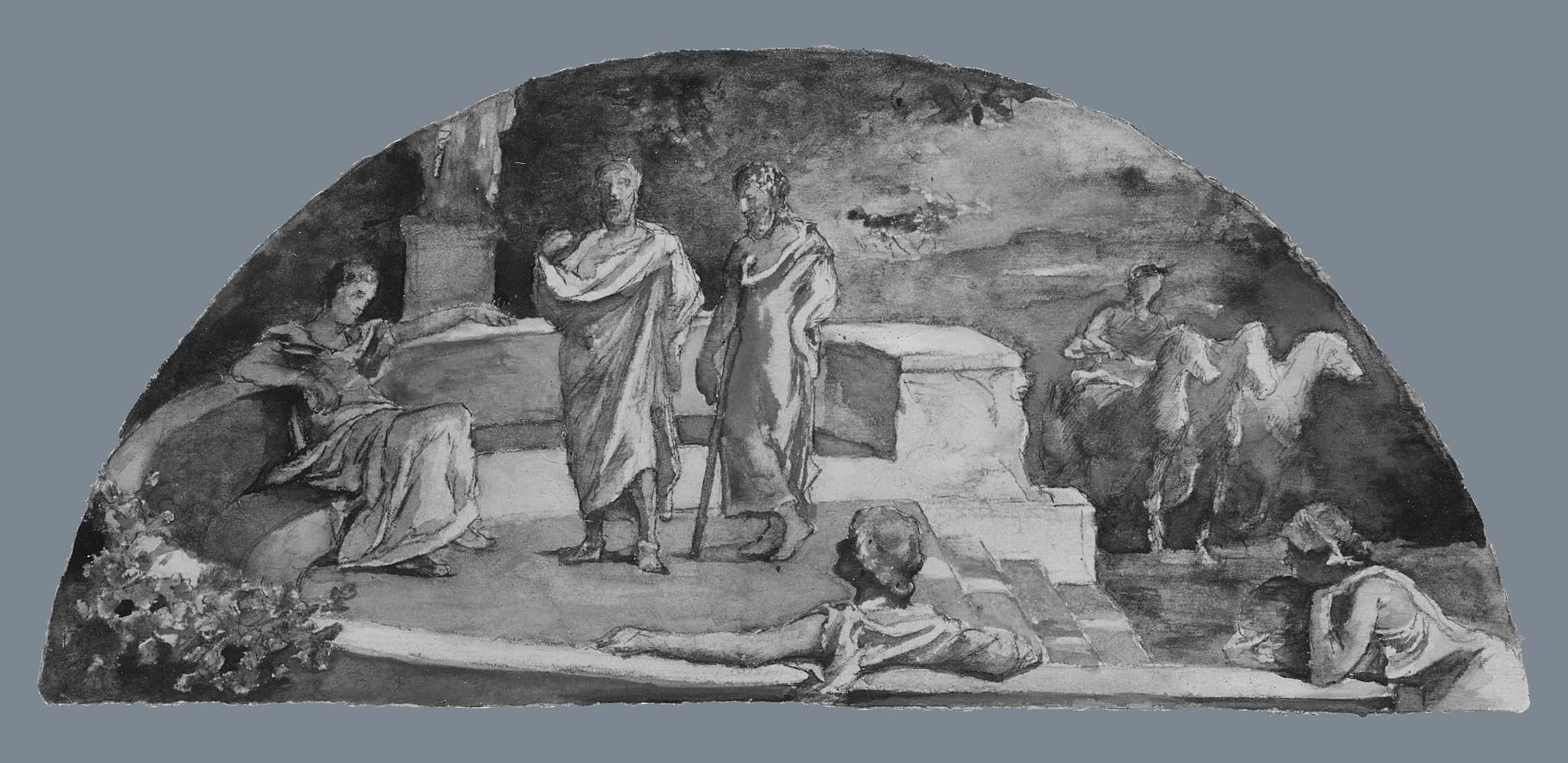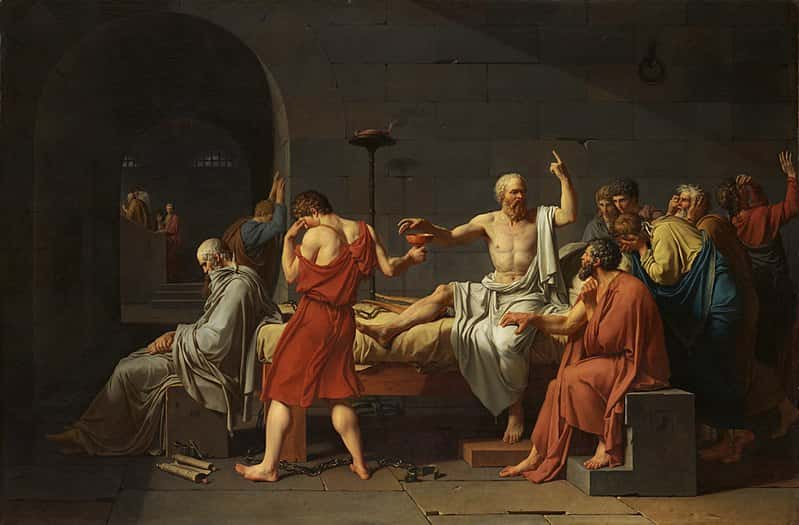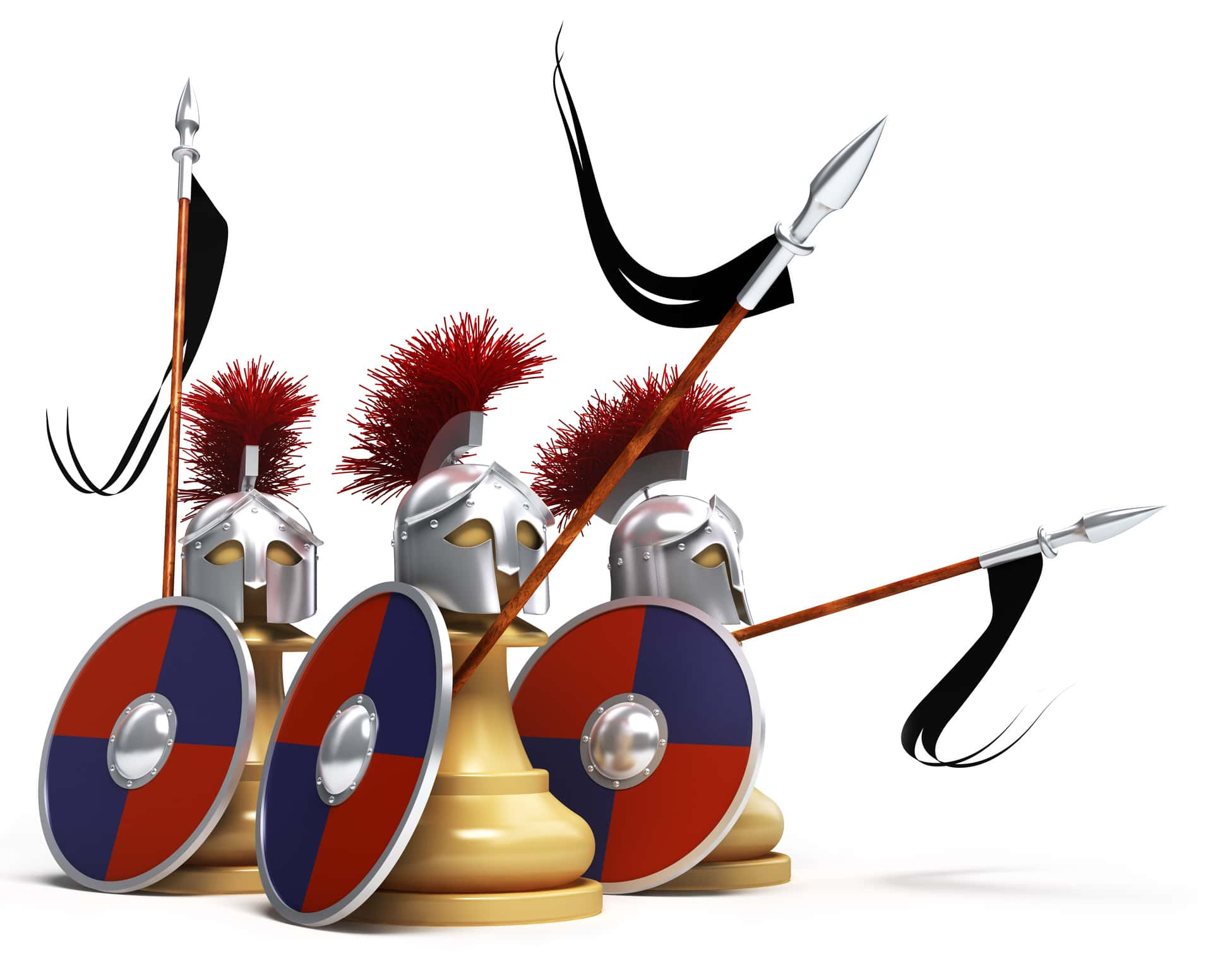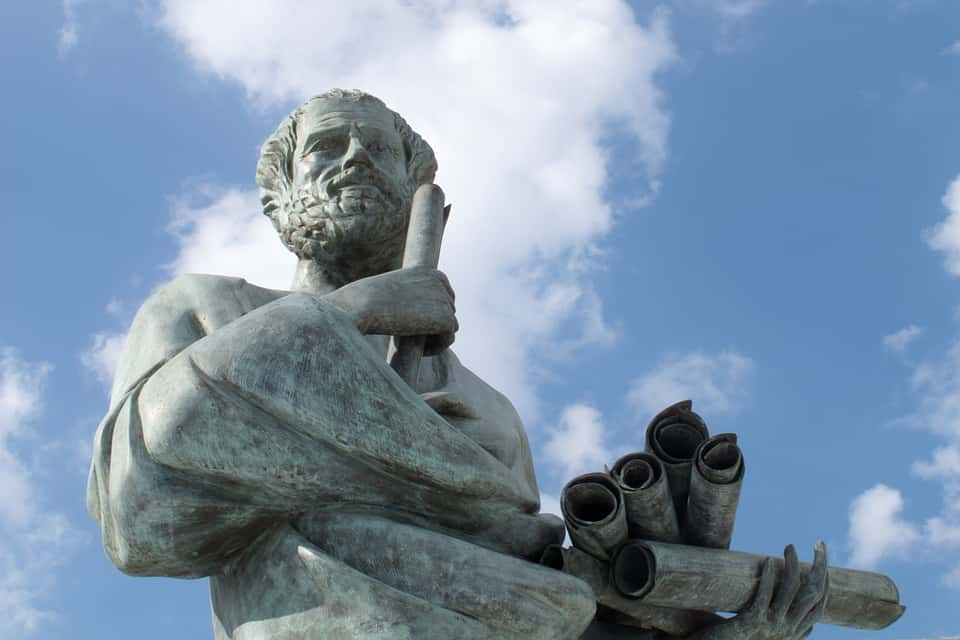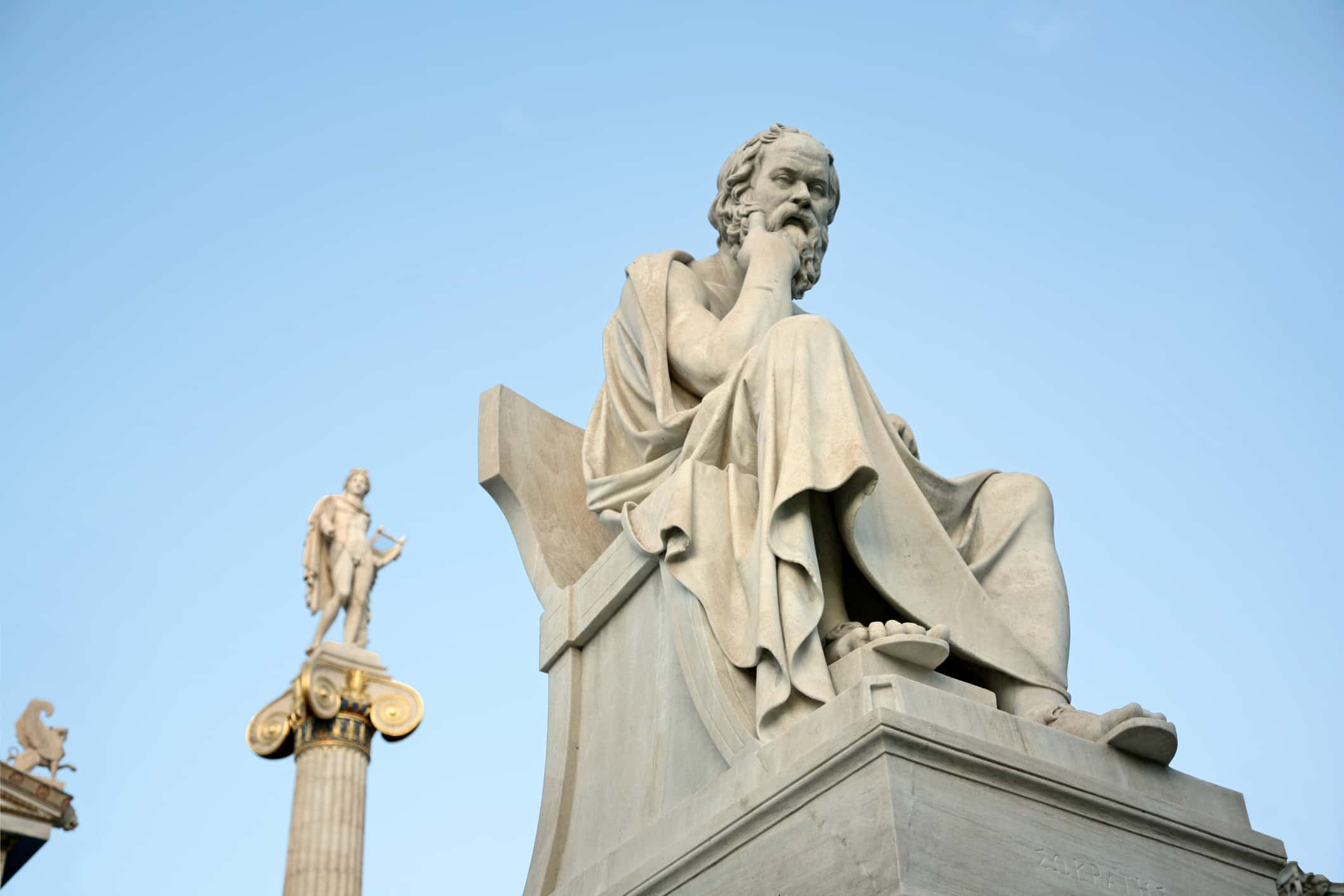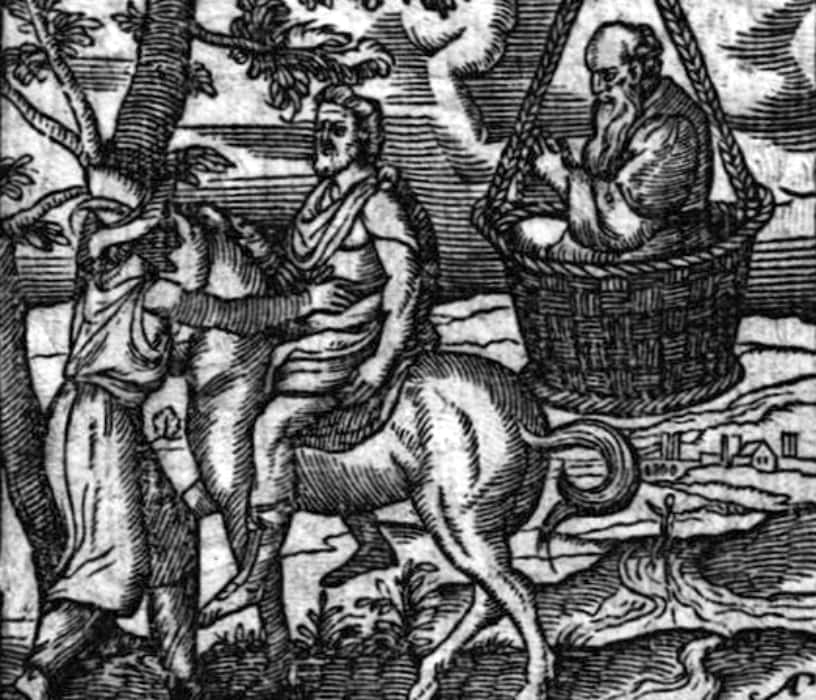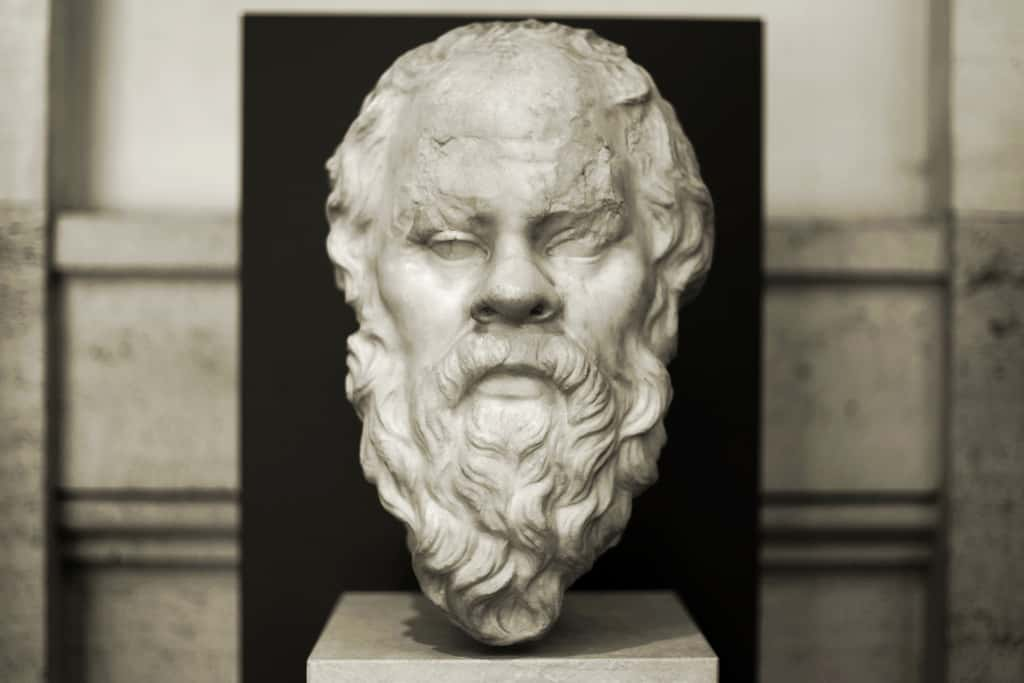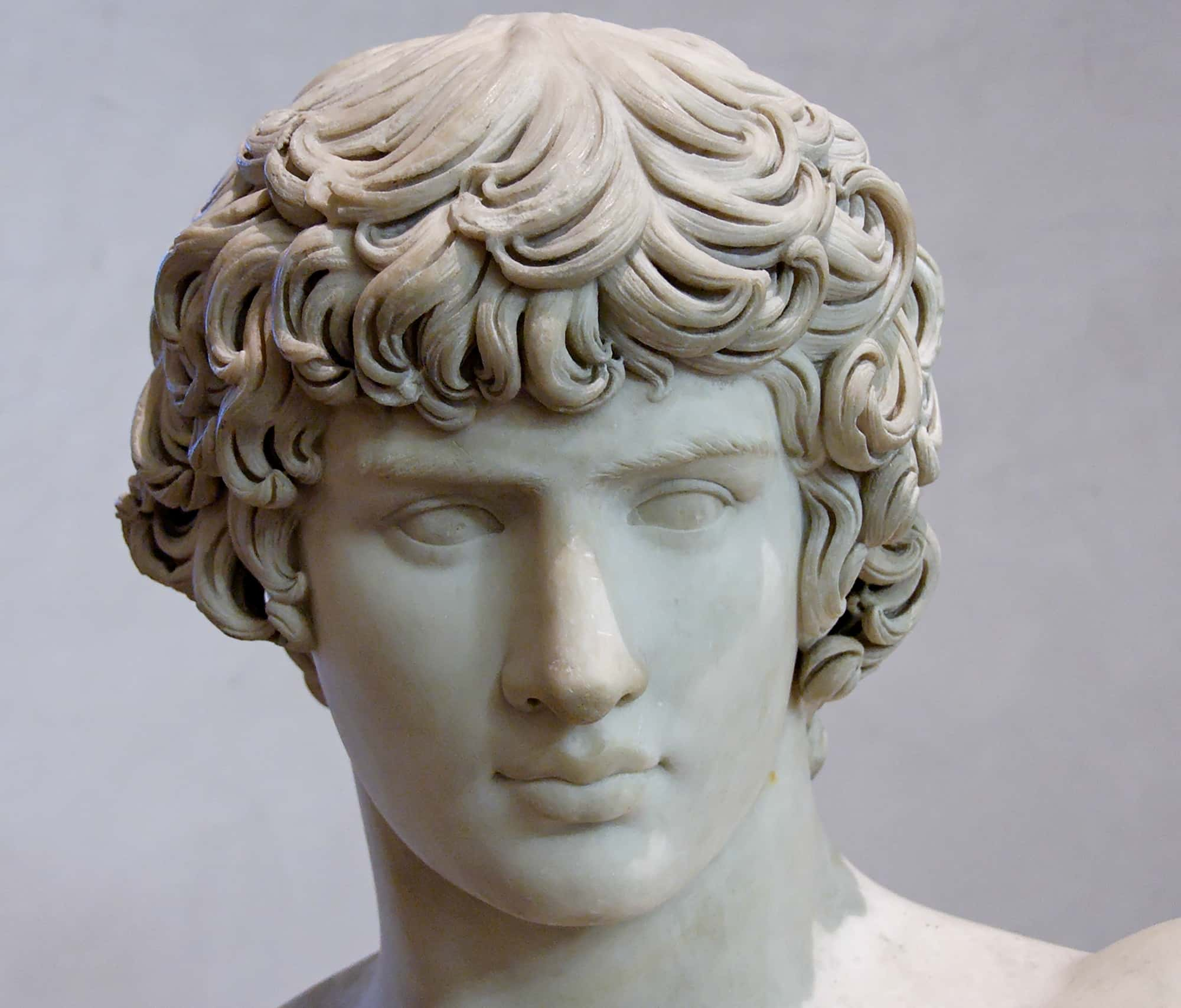"I only wish that wisdom were the kind of thing that flowed … from the vessel that was full to the one that was empty." Socrates, quoted in Plato's Symposium
Socrates is one of the biggest influences on Western thought and Western philosophy. He is famous for his intellect, his views on society, and his rather chilling end, with him being forced to drink poison after he was found guilty of corrupting the youth of Athens with his ideas. His name is synonymous with wisdom and philosophy, even for those who don’t really know about him. To be fair, though, they would be forgiven for not knowing much about Socrates. For such a famous and influential figure, we actually know very little for sure about Socrates. We here at Factinate tried our best to acquire what is known about this man, and present it here for you in these 42 facts about the Father of Philosophy.
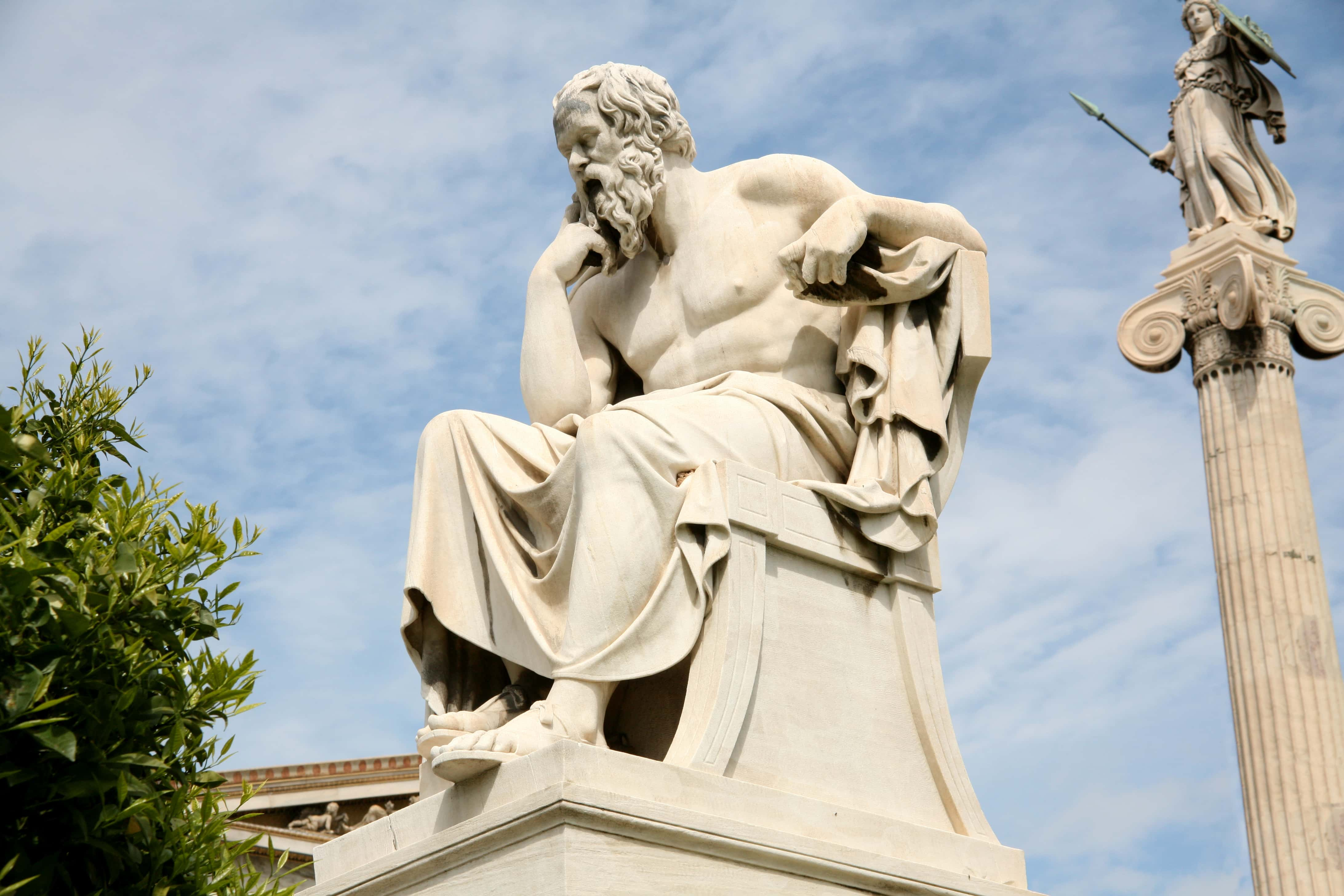
Socrates Facts
42. Distant Next of Kin
Socrates was allegedly born in 470 BC in the city of Athens to a midwife named Phaenarete and a stonemason named Sophroniscus. Socrates also had a half-brother named Patrocles. Outside their names, very little is known about any of his family members.
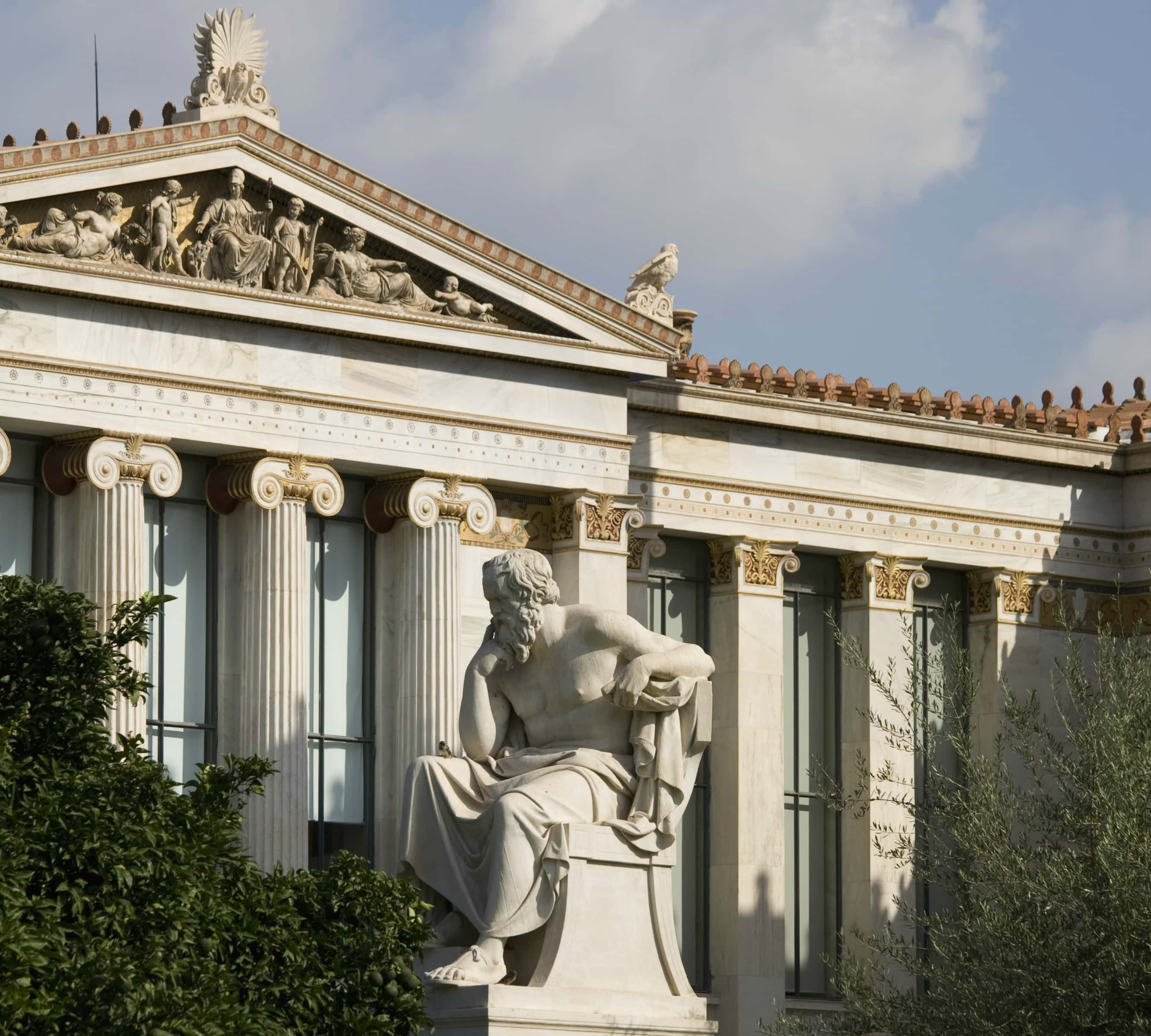
41. Raised in Wartime
Socrates lived during the Peloponnesian War, a devastating conflict which tore the Greek city-states apart. The majority of Greeks either sided with Sparta or Athens, the two most powerful (and starkly different) city-states in all of Greece. Spoiler alert, Sparta ended up winning, but we’ll cover more of that later.

40. Maybe the Life Rights Were Too Expensive?
Of all the people who wrote about Socrates, the only one who wrote about him during Socrates’ lifetime was the playwright Aristophanes. Everything else we know about the man was written after he'd taken the hemlock.
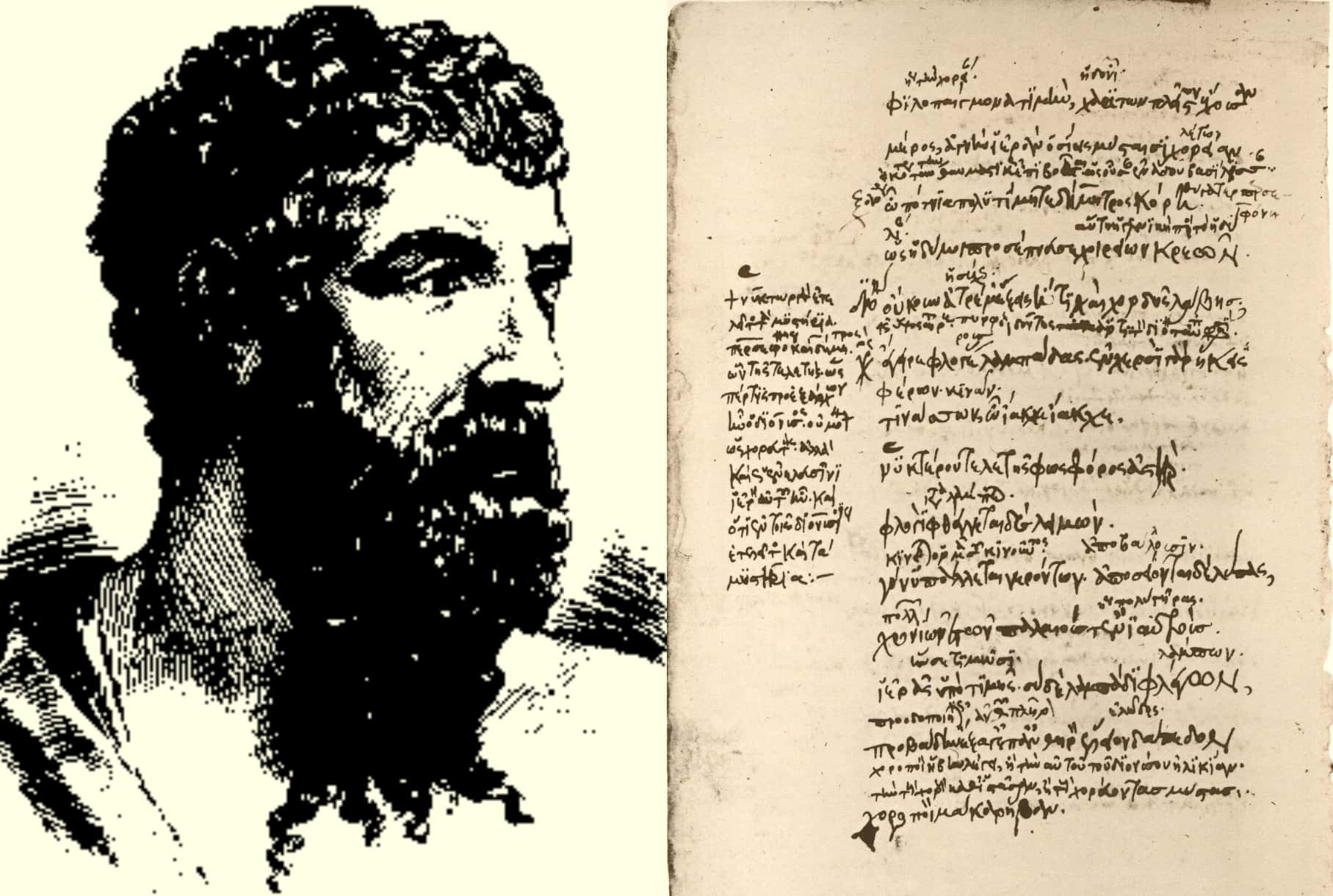
39. Get the Story Straight!!
The fact that Socrates is only known through the writings of others has given rise to the "Socratic problem." The problem rests in the issue that all the sources written about Socrates frequently contradict each other on the details of his life, so the task of understanding anything definite about him is extremely difficult.
38. Socrates the Sophist
Socrates is frequently portrayed as having been a sophist. Sophistry involves “ingenuity in reasoning or for deceiving someone.” In Socrates’ time, sophists taught lessons in rhetoric, and how to use it to win people over. Since ancient Athens was such a hub for debate and speeches, sophists were in high demand.

37. You Know Nothing, Socrates
In one of the most famous stories about Socrates, his friend asked the Oracle of Delphi who was wiser than Socrates. The Oracle declared that nobody was wiser. To give Socrates some credit, he refuted this belief, thinking he knew nothing. So he approached the wisest men he could find to test the Oracle’s claim. To his surprise, he concluded that all the supposed wise men he found were not so knowledgeable at all! Socrates realized that his humble acknowledgment of knowing almost nothing was a wiser stance than that of the others, leading to the famous line (though likely not an exact quote) "I know that I know nothing."
36. Cut Short? Not Exactly
If the sources can be trusted, Socrates died in 399 BC at the ripe old age of 71 years. Given the era in which he lived, it’s safe to say he had a relatively long life—albeit one ended prematurely.
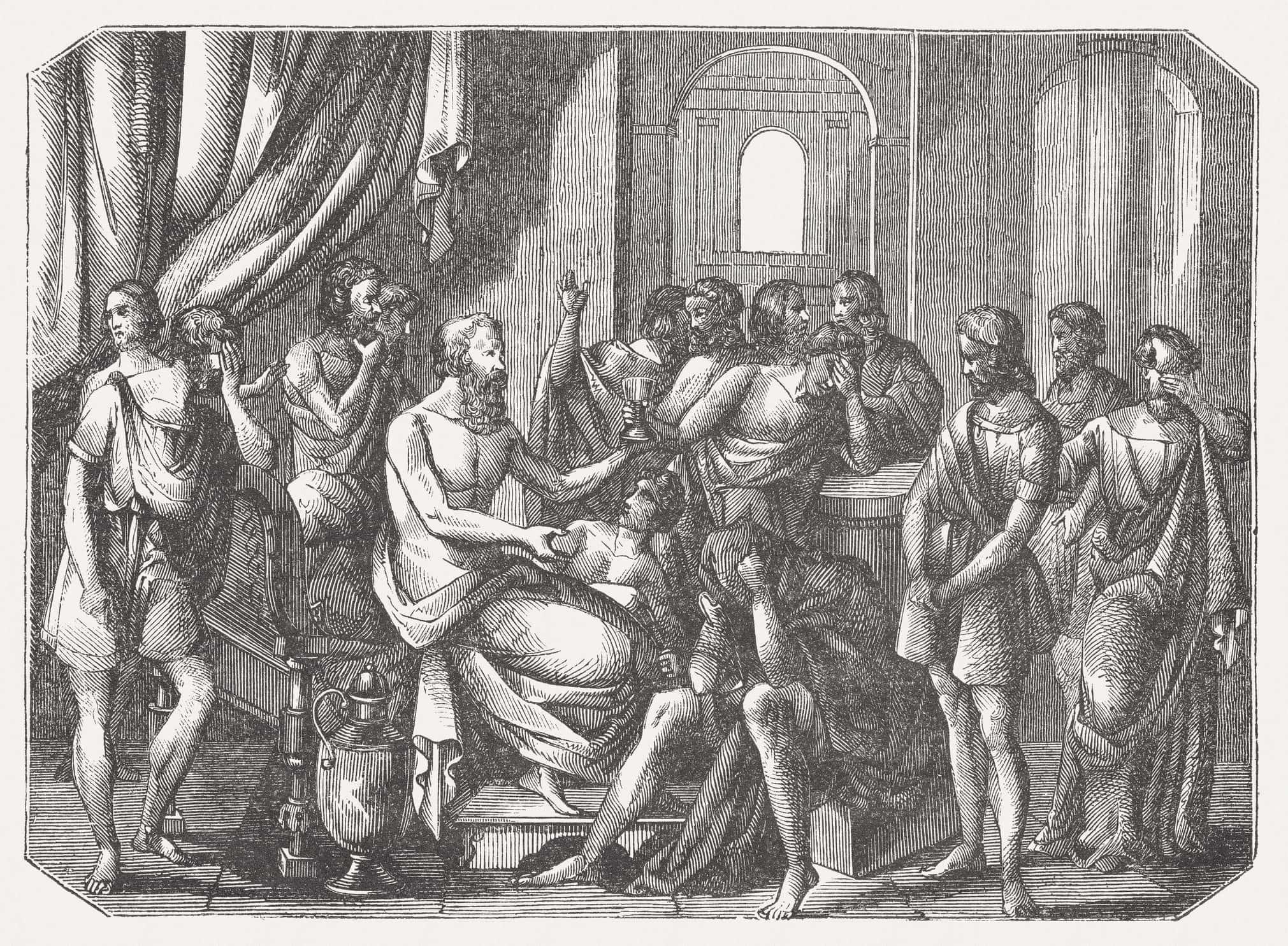
35. Home Sweet Home
Another thing that is agreed on by all the sources on Socrates is that he spent his life living in Athens. Of course, maybe some more changes of scenery would have been a bit handy, what with his eventual prosecution and death!

34. Written by the Victors
One of Socrates’ protégés was Xenophon, a prominent soldier-turned-historian in ancient Greece. Xenophon would go on to write about Socrates, but we have to assume that he might have been wearing rose-colored glasses.

History's most fascinating stories and darkest secrets, delivered to your inbox daily.
33. Sure, I Believe That!
Some rather strange beliefs are associated with Socrates. They are called “paradoxes” by historians and intellectuals due to the fact that it’s so odd that such a wise philosopher would believe these ideas to be true. Among them include the idea that “no one desires evil.” One could make an argument that even evil people see themselves as good, or at least victims, but we’d argue that the existence of internet trolls proves Socrates wrong!

32. Thanks, Plato!
Admittedly, if there was anything that Socrates could choose to write about him, he’d be hard-pressed to find a more devoted ally than Plato. Plato adored Socrates and provided a much-idealized view of him through his philosophical writing. In fact, Socrates is frequently a character in Plato’s works to speak to the audience via his conversations with other characters.
31. Associates in High Places
Socrates’ father, the stonemason named Sophroniscus, was said to be a good friend of Lysimachus, who was the son of renowned Athenian statesman Aristides. Such was his outstanding reputation that he was even called Aristides the Just (though that didn’t stop the citizens of Athens from exiling him in the 480s BC). However, the connection meant that Socrates got to rub shoulders, for a time, with the elite of Athenian citizens, including Pericles, who helped lead Athens during part of the Peloponnesian War before his death.

30. Working with Your Hands
It’s been written that Socrates followed his father into the practice of stonemasonry, at least for a time. One theory even states that Socrates was responsible for the statues of the Charites. These statues decorated the sacred Athenian hilltop called the Acropolis until the 2nd century AD.
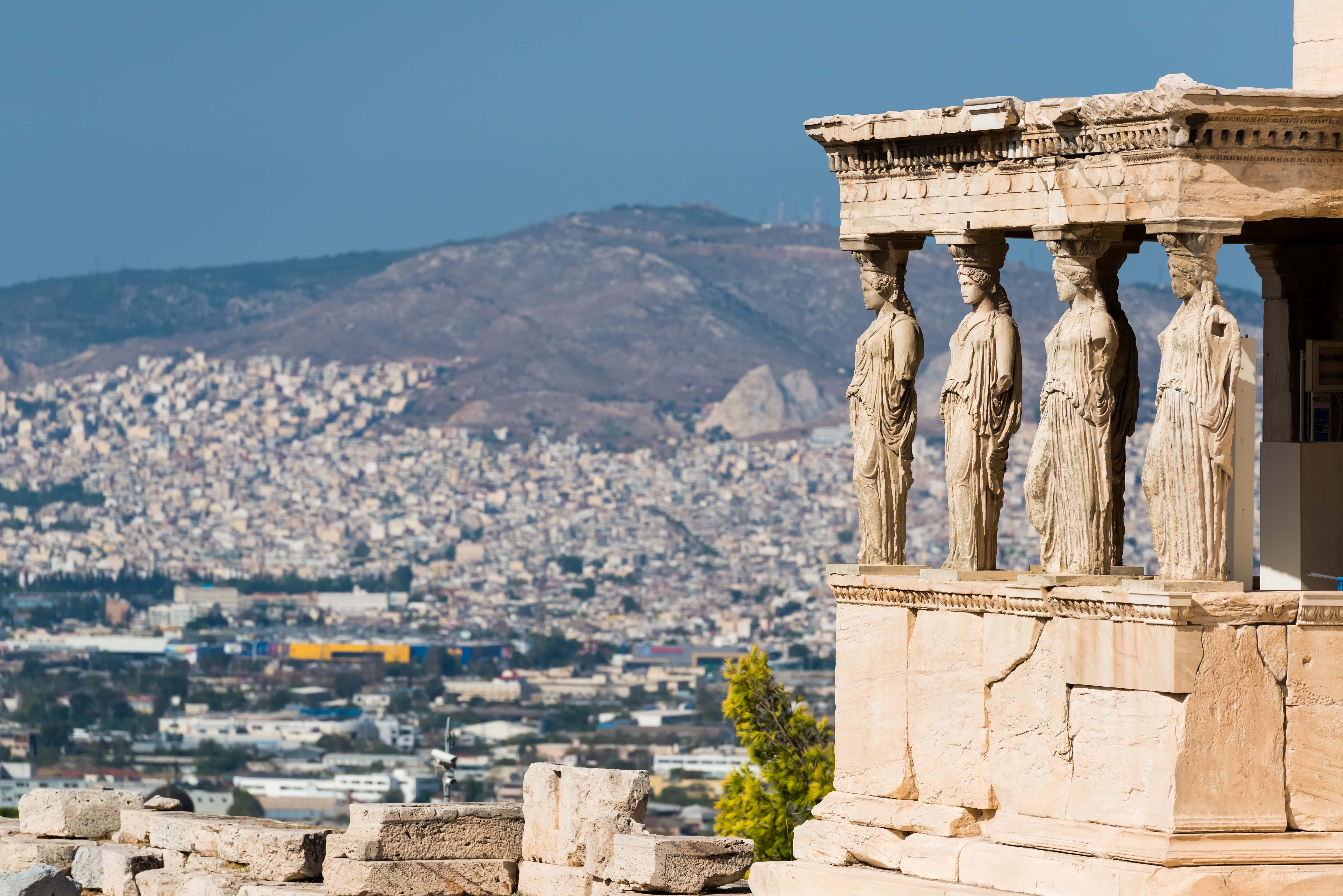
29. Burn the Warlock!
The fact that Socrates put himself in the position of a critic of Athenian society and government made it rather easy to accuse him of corrupting the youth. He was also charged with impiety, or heresy, depending on which source you read.
28. The Way of the Sword
Believe it or not, Socrates served as a hoplite (heavy infantryman) during the Peloponnesian War. He served in multiple battles, as was documented by several writers, but more on his soldierly reputation later.
27. They Taught Me Well
Socrates credited numerous people for his ideas rather than claim them to be his own. Among his teachers were said to be the philosopher Anaxagoras and the rhetor (teacher of rhetoric) Prodicus.
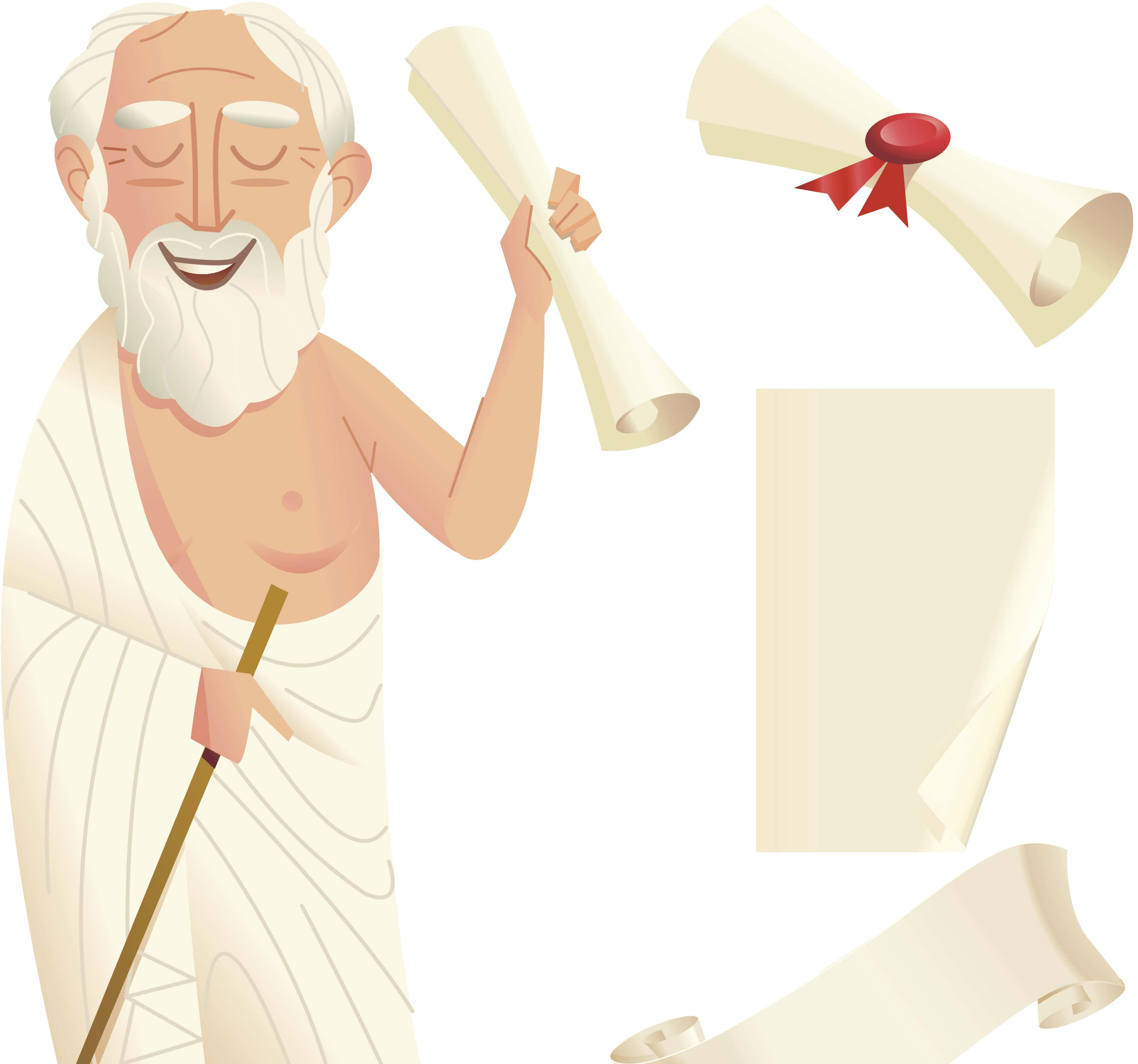
26. Ladies…
Interestingly, Socrates also included two women in the ranks of his teachers, rare for an ancient Athenian to admit! According to Plato's Symposium, Socrates credited a supposed witch named Diotima with teaching “all he knows about eros, or love.” Moreover, Socrates claimed to learn the art of rhetoric from Aspasia, who was the mistress of the great Athenian general Pericles.

25. Do I Look Rich to You?!
One of the biggest inconsistencies in Socrates’ portrayal by other writers is whether he got paid or not. According to Aristophanes, Socrates hypocritically ran a school and taught his views for monetary reward. Plato and Xenophon, however, declare that Socrates was only interested in philosophy for its own sake. During his trial, Socrates allegedly argued that his poverty proved that he couldn’t possibly be a teacher.
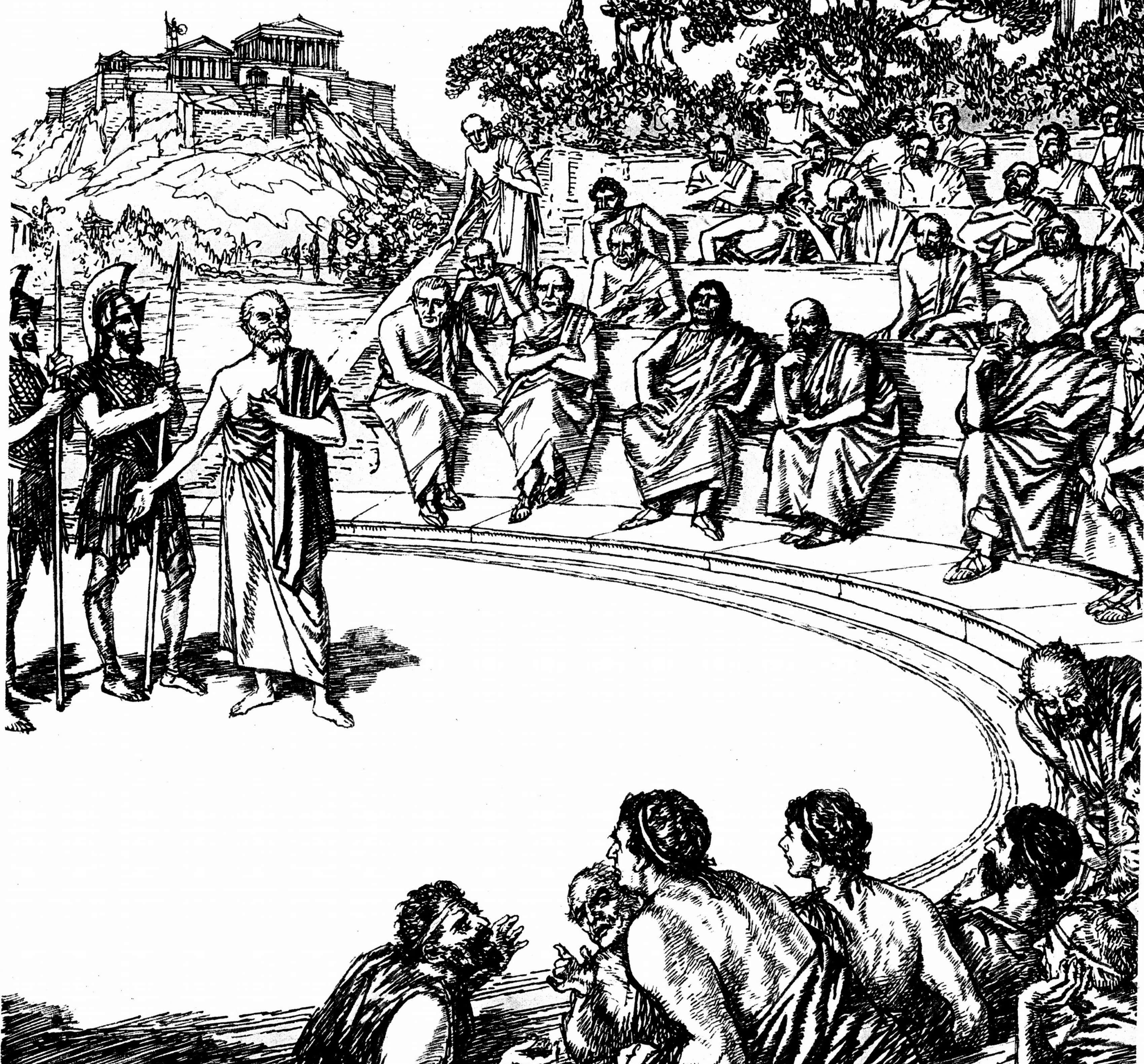
24. Can’t We Have Some Impartiality?
Sadly, for historians, the people behind Socrates’ trial and execution “left no testament” concerning the case. Any facts have to be gleaned from the aforementioned texts, all of which clearly have agendas of their own.

23. Sacre Bleu!
No less a figure than the French writer Voltaire wrote a “satirical play” about Socrates’ ill-fated trial. The play, simply titled Socrates, depicts its title character as being a victim of religious and governmental persecution.
Safe to say that Voltaire, like Plato, had a few axes to grind and he used Socrates to his own ends.
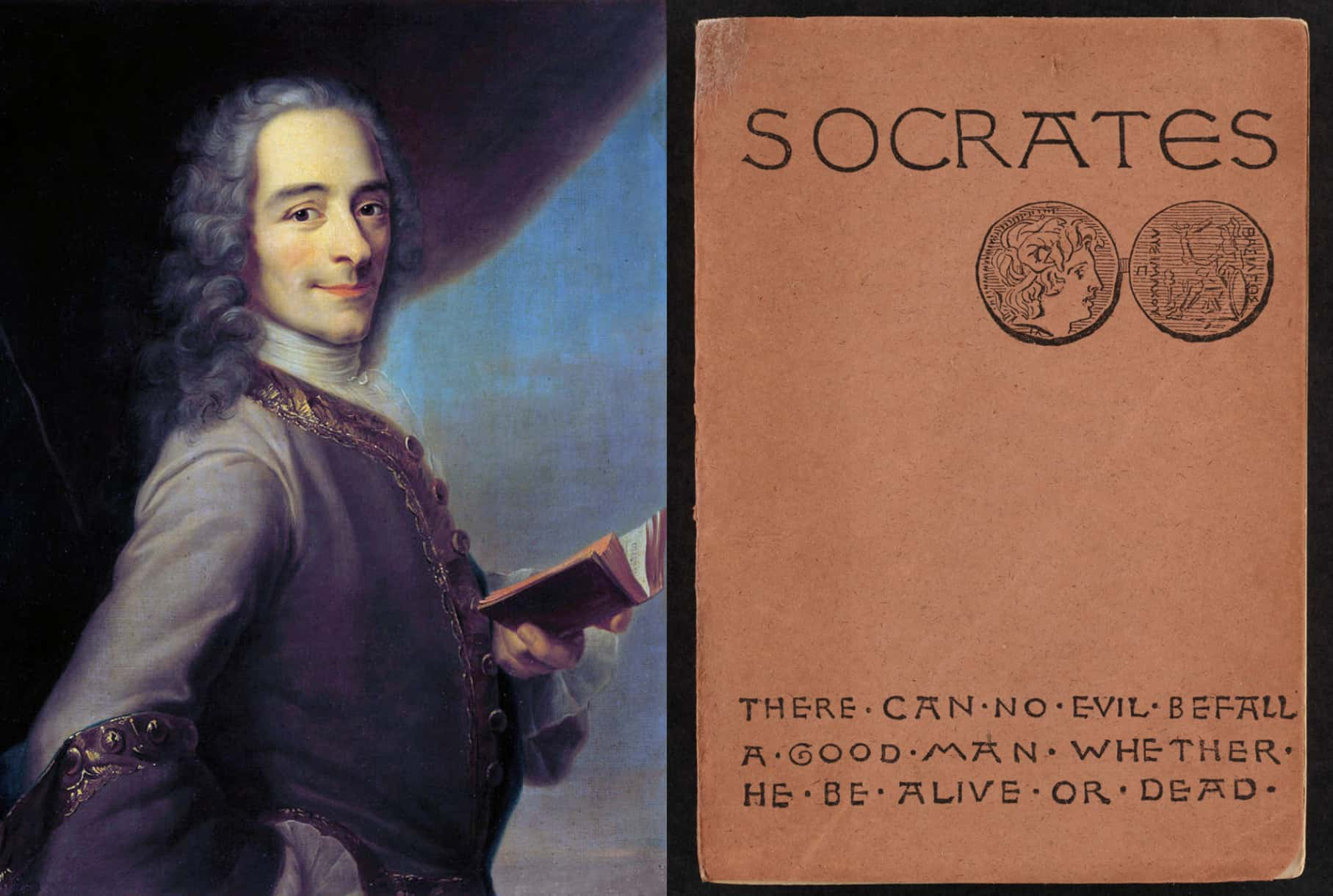
22. Kumbaya!
Socrates frequently claimed that virtue was worth far more than any material wealth. He would advocate for the pursuits of friendships and for society to come together as a community. How tragically ironic that his own community would turn so hard against him!

21. Six Degrees of Separation
Socrates’ name and philosophies spread far beyond Greece during the Hellenistic Era. This was the time when Greek culture was stamped all across the ancient world thanks to Alexander the Great. Interestingly, Alexander was mentored in his youth by Aristotle, who had been a protégé of Plato, former student to Socrates! Turns out what goes around comes around!
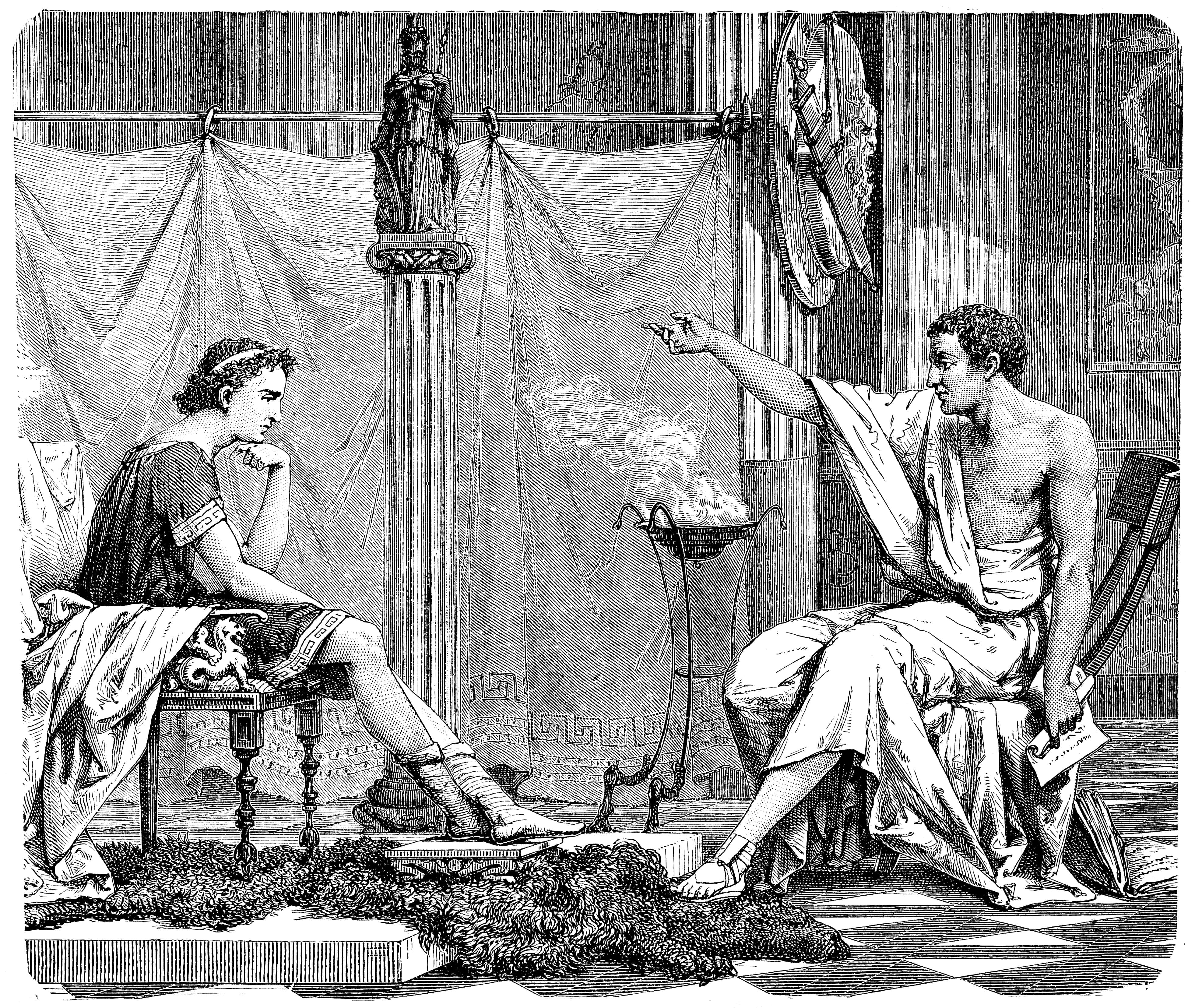
20. Internationally Influential
Speaking of widespread influence, Socrates found himself given an Islamicized name when Arabic philosophers became aware of his legacy. Dubbed “Suqrat,” his ideas were introduced to the Arab world by renowned figure Al-Kindi.

19. Close Association
Although Socrates is portrayed very positively by Plato in his writings, we can never be sure where Socrates’ philosophies end and Plato’s begin. Maybe Socrates could have taken some time to put pen to paper at least once? Just to clarify things before Plato got started?
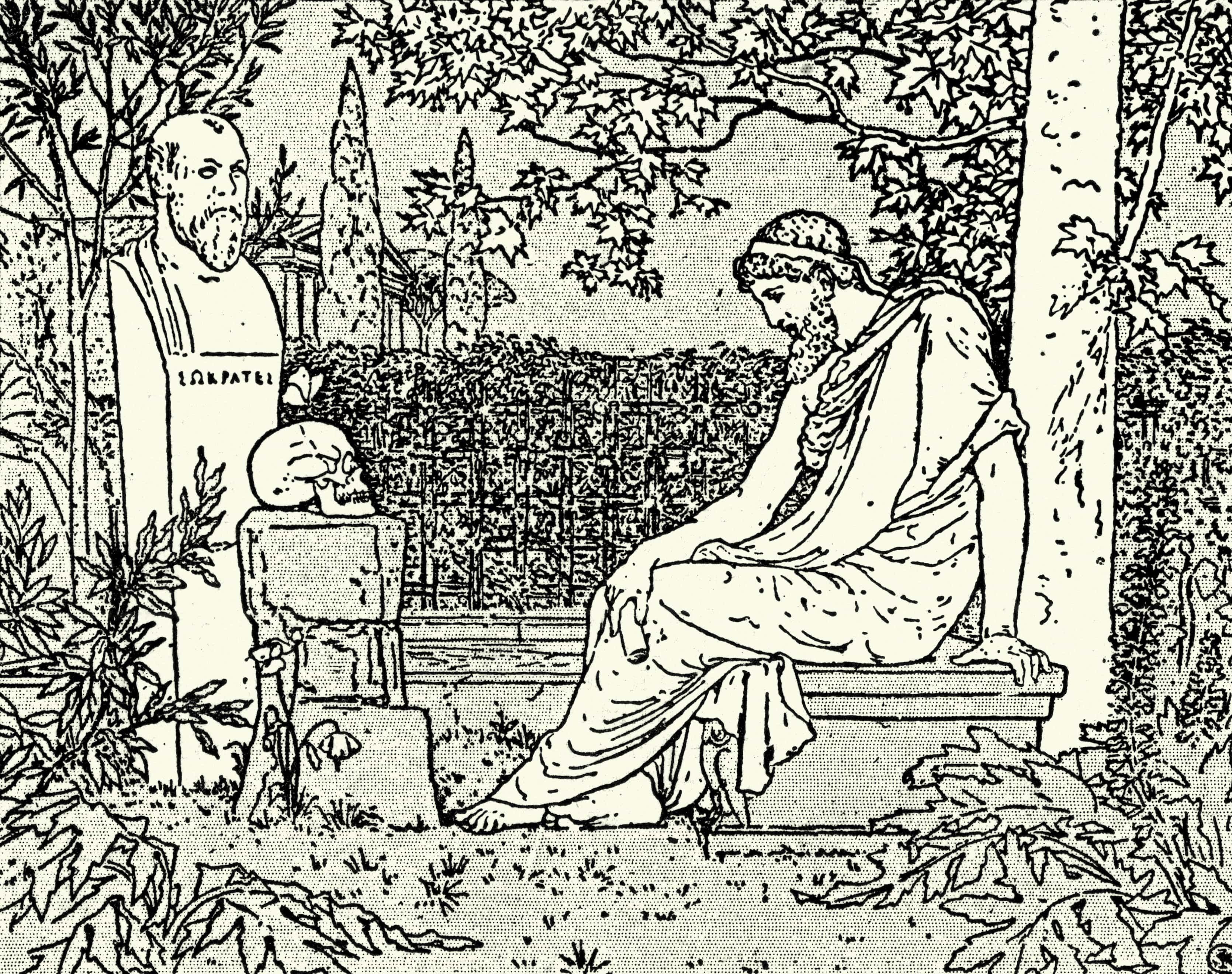
18. The Death of Socrates
According to one version of Socrates’ death, he was made to consume a drink containing the poisonous plant known as hemlock, which he did willingly. He was then made to “walk around until his legs felt numb.” The effect of the poison then worked its way up his body until his heart gave out.
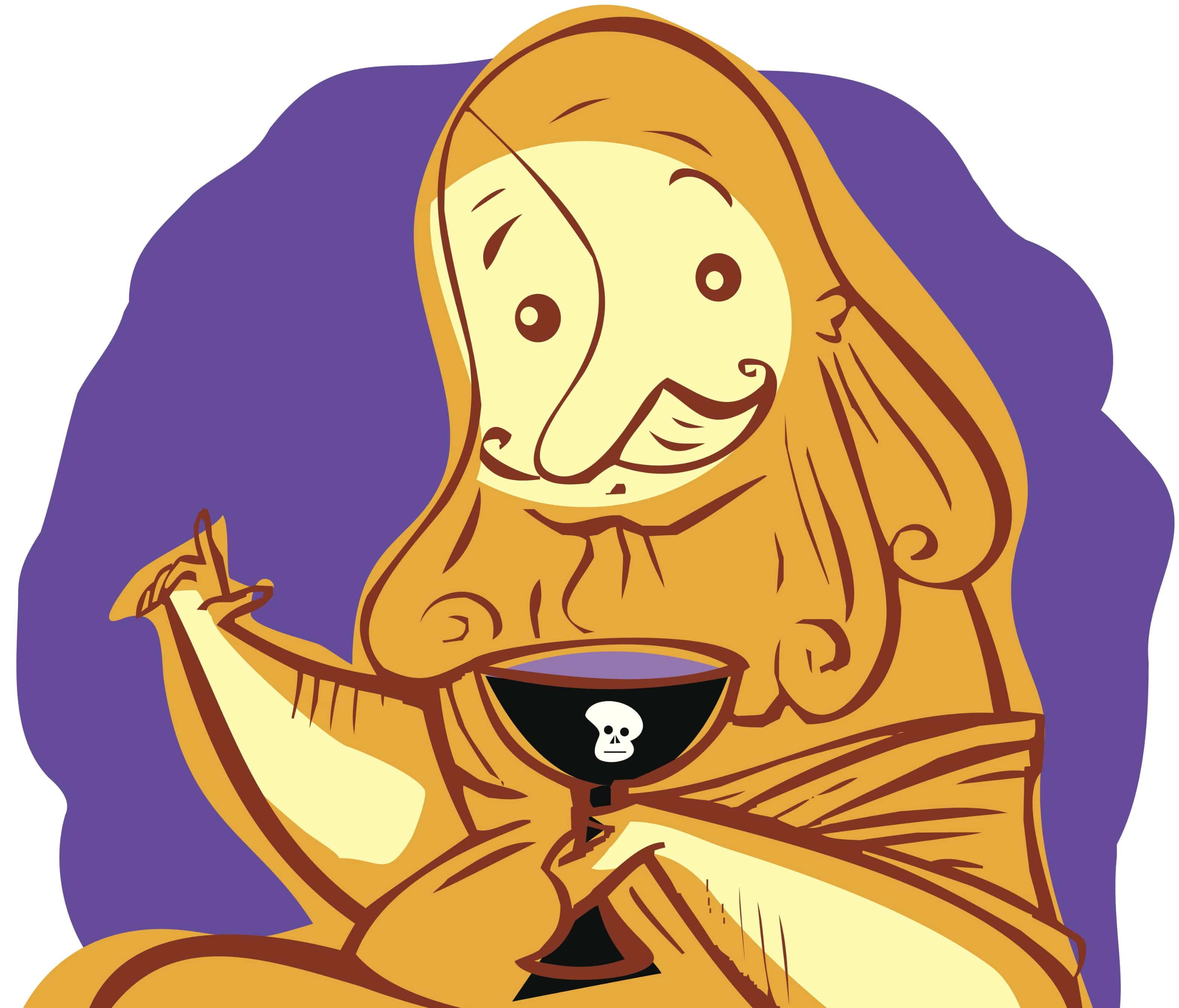
17. Late Bloomer
Socrates is said to have had three sons: Sophroniscus (named for Socrates’ father), Lamprocles, and Menexenus. According to the sources, Socrates entered fatherhood at a very late age, as his children were described as being very young at the time of their dad’s trial (remember that Socrates was around 70 at the time).

16. Captured on Canvas
Through Plato’s writing, Socrates’ name and reputation thrived in Western Europe over the centuries. Many paintings from such periods as the 18th century depict the philosopher in various positions as teaching Plato, instructing Alcibiades, or taking his cup of hemlock.
15. What About “Institute”?
It was actually Plato, Socrates’ most famous student, who provided a new word for an education institution. After Socrates’ death, Plato would go on to found the Academy, which became so famous that it gave its name as a synonym for school. No doubt Socrates would have approved!

14. Here Comes the Judge
Socrates was said to have served as Epistates (overseer) in a trial of several Athenian generals during the Peloponnesian War. The generals were accused of abandoning many dead and injured Athenians so that they could pursue fleeing Spartan ships. Many declared that the generals should be punished cruelly as forsaking their duties. Socrates ended up pushing the conclusion that the trial had been undermined by a miscarriage of justice. Rather ironic that Socrates would later be brought down by a trial many years later.
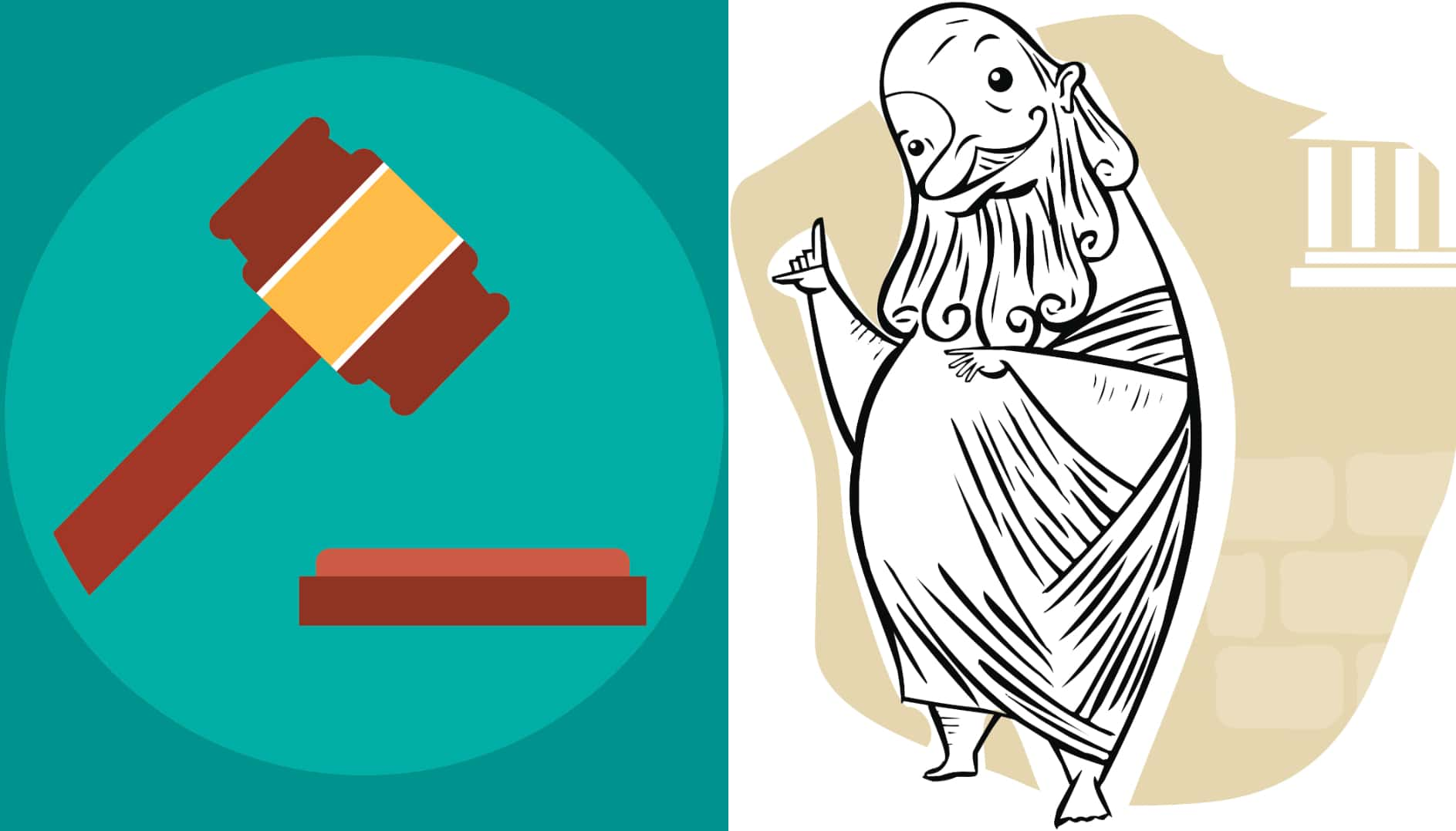
13. Buzz Off!
Plato describes Socrates as being the “gadfly” of Athens. Gadflies were well-known to sting and infuriate animals. Given how much Socrates’ views and rhetoric so angered his fellow citizens, the comparison seems very apt.
12. The Wily Pupil
One of Socrates’ most well-known protégés was Alcibiades, who was one of the most polarizing figures of the Peloponnesian War, or even ancient Greek history for that matter. Alcibiades was a brilliant general and statesman who initially fought for Athens, his home city. However, he would go on to make more enemies than even Socrates did. Alcibiades’ story could honestly fill an HBO series, given that he turned traitor several times during the war, and played a very large role in deciding its outcome. He ultimately died just a few years after Socrates, murdered while on the run with one of his many mistresses.
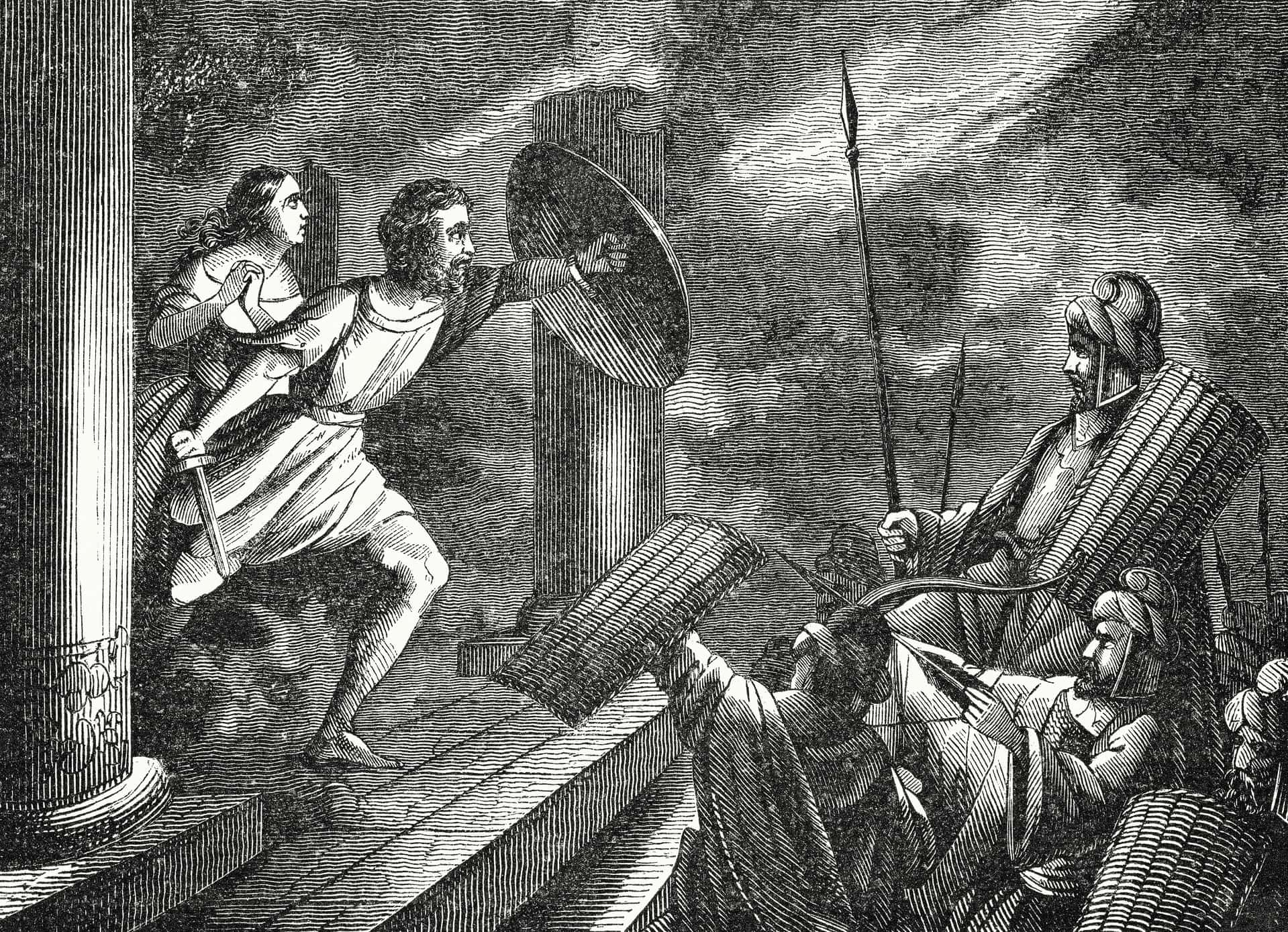
11. Life Saver
One reason for Alcibiades’ loyalty to Socrates is the fact that they both served together as soldiers. Socrates is said by Plutarch to have saved Alcibiades’ life at the battles of Potidaea and Delium.

10. Blame the Student or the Teacher?
Given that Socrates was accused of corrupting the youth of Athens, the example of the opportunistic Alcibiades was fodder for his enemies in court. Historians such as Xenophon and Plutarch go out of their ways to exonerate Socrates from corrupting Alcibiades. They argued that Socrates had tried to cure Alcibiades of his vanity and corruption, but he failed.

9. Keep Your Heads Down
According to Aristotle, Socrates’ children didn’t turn out very talented when they grew up. In fact, Aristotle was especially salty about the subject, claiming that Socrates’ kids all turned out “silly and dull.” Very harsh, but given what happened to their intellectual father, maybe they were playing it safe?
8. Just What the Doctor Ordered
Socrates’ last words vary based on the writer reporting them, but a consistent theme is his reminder to Crito that a rooster must be sacrificed to Asclepius. Asclepius was the son of Apollo and the god of medicine. This ties into the idea that Socrates saw his death as a “cure for Athens’ ailments” since he was the man goading and questioning all that the Athenians believed sacred.
7. Facing the End
There is a strong debate about whether Socrates was forced to drink the poison, or whether he willingly chose suicide. Still others give a third argument that it was a bit of column a and column b. Certainly, according to Plato, Socrates was given the chance to escape while he was still imprisoned. Despite the urging of his friends to let them help him escape, Socrates refused. Plato went on to explain his mentor’s reasoning; if Socrates had indeed fled, he would have become a hypocrite who feared death and the punishment of his city. Moreover, his friends would have been punished, and no matter where Socrates went, he would make more enemies and risk death yet again.
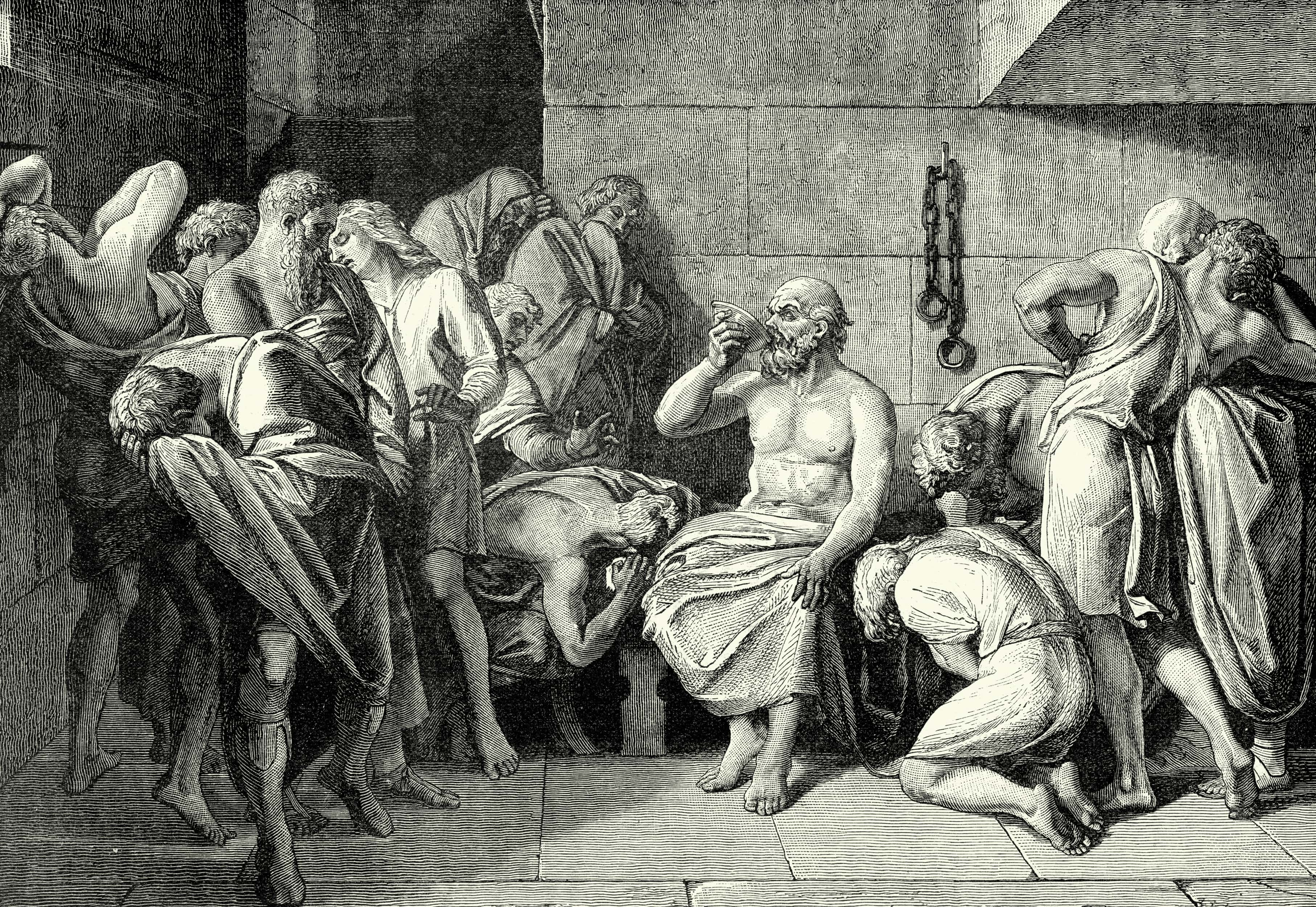
6. So Where’s the Silver Lining?
Such was Socrates’ reputation in his own lifetime that he was a source for comedic parody. While several caricatures were made about Socrates, the very first was Aristophanes’ The Clouds.
5. He’s Also Terrible in Bed!
Among the satirical aspects of Aristophanes’ play is portraying Socrates as a dangerous influence who teaches his students how to use rhetoric to sneak out of debts. Socrates is also portrayed as ugly and physically unhygienic. Not exactly as flattering as Plato’s writing, that’s for sure!

4. Comedy Can Kill
Interestingly, the caricature of Socrates in Aristophanes’ play The Clouds was used as evidence against Socrates in his trial! Not sure that would hold up in court today.

3. Smart and Ugly
Only a few facts are consistently reported in all the sources about Socrates. When it comes to his person, only two traits are agreed on unanimously: Socrates was very intelligent, and he was also very physically unattractive. He allegedly had bulging eyes, an upturned nose, and fat lips. He went around barefoot and gave no thought whatsoever to his clothing. Guess you can't have everything.
2. Critias the Cruel
One of the more infamous men associated with being a student of Socrates was Critias. Critias was an Athenian writer of prose and elegies. He was also a politician and became one of the Thirty Tyrants. These men were appointed by Sparta to rule Athens after Sparta emerged victorious in the Peloponnesian War, and while they only ruled for eight months, they saw 5% of Athens' population killed. Naturally, Critias’ bloody rule and violent end proved a stain on Socrates’ reputation by association.
1. Repayment of Debts
Say what you will about Critias’ bloody legacy as one of the Thirty Tyrants, but he did remember his mentors when he was in a position of power. Despite their disagreements, Critias made sure to protect Socrates from persecution during the Thirty Tyrants’ reign over Athens.
